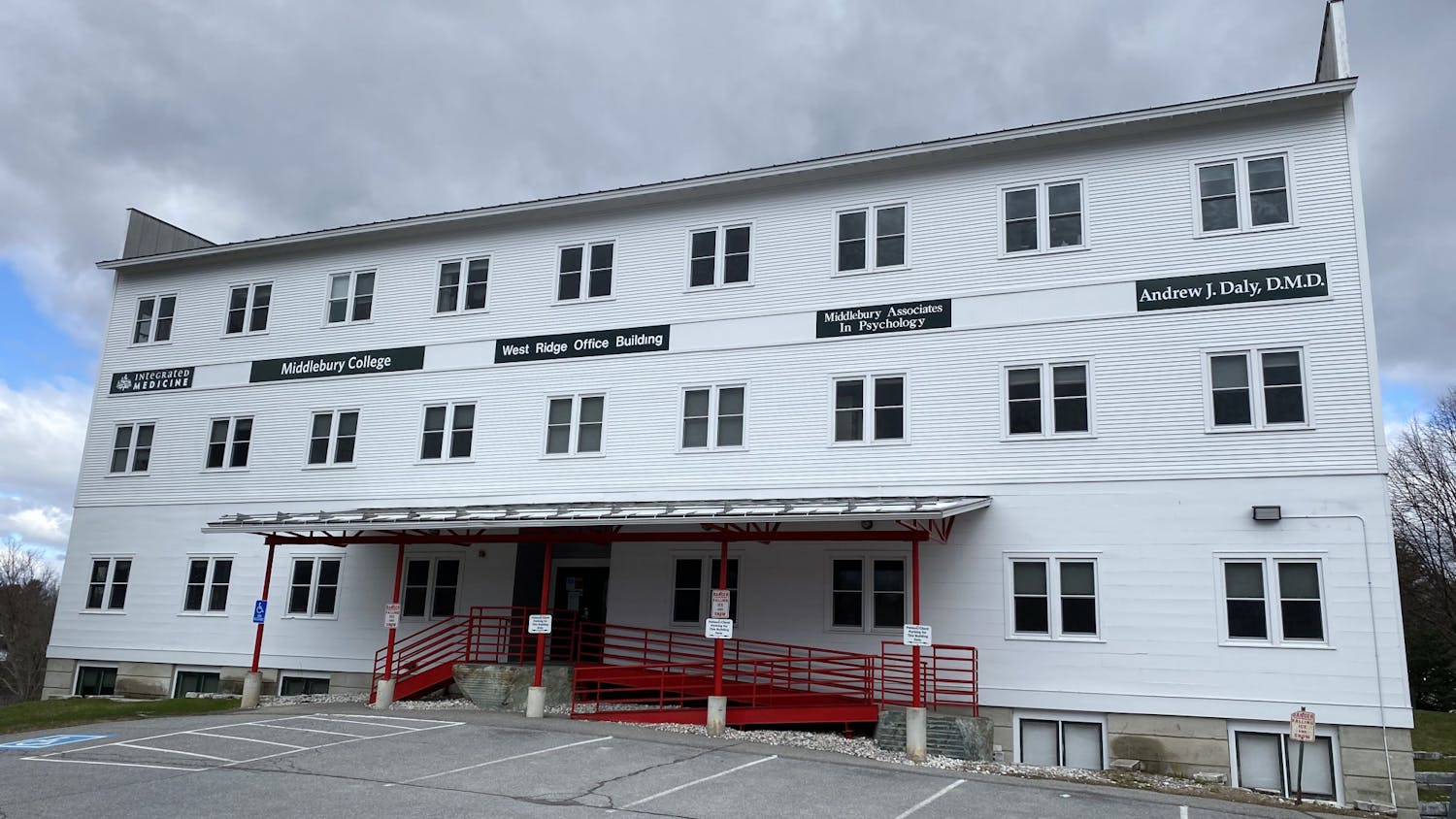Forced to find second jobs in town to make ends meet, college staff members say that lack of opportunity for wage increase causes both motivation and morale to suffer.
According to data from the 2021 Middlebury Staff Council Survey, 58% of respondents strongly disagreed or somewhat disagreed with the statement “I am satisfied with the salary portion of my compensation.”
Forty-six percent of respondents from that same survey strongly disagreed with the statement “I find I do not need a second source of income to make ends meet.”
Nearly everyone in facilities has either a second job or a side-hustle, such as private home cleanings, said a custodian who asked to remain anonymous. In addition to the pressure of working two jobs, they said a lot of pressure is created within the department by facilities staff trying to compete with each other for any possible extra compensation.
“There is a lot of negative energy around it,” they said. “I feel there’s a lot of people trying to one up the other, get further ahead. A lot of that comes back to compensation.”
In an interview with The Campus in November, Dustin Bradford said that the lack of growth opportunity and lack of possibility for wage increase thwart motivation and morale among employees. Bradford — formerly a General Maintenance Heating, Ventilation, and Air Conditioning [HVAC] technician — left the college that same month for a similar position at a private company that provided more job growth opportunities.
Both Bradford and the custodial employee cited the college raising minimum wage to $15/per hour in 2018 as one of the events most damaging to morale. According to Bradford, the minimum wage increase resulted in pay compression, where employees who had been at the college for over eight years were making the same as those who were just hired.
“I am trying to move up through the chain and people are walking in the door at my level, so that all that progress that I feel like I’ve made is worthless,” Bradford said.
Tim Parsons, the college’s landscape horticulturist, echoed the sentiments of Bradford and the custodian in an op-ed he wrote last March.
“Long-time workers at Middlebury deserve to be paid more than new hires and should see a one-time increase in pay under our pay-by-tenure system,” Parsons wrote.
Because of this pressure to pay lower-level staff members lower wages than their supervisors, the custodian who asked to remain anonymous said they have virtually no pay-raise to show for their six years of consistent work.
“We go to a bank to even get a loan, or to buy a car, and the bank questions how good we are at our job… We make so little with our years of service and just have higher interest rates,” the custodian said.
The administration addressed issues of wage compression with faculty and staff over the summer for the 2021-22 school year.
“In addition, we will be taking steps to address wage compression. Following our efforts to increase the pay of benefits-eligible employees in pay grades OP1, OP2, and OP3 to $14, $15, and $16 in 2020, we will apply adjustments to ensure that length of service is considered consistently when setting individual pay rates,” the Office of EVP and Treasurer wrote in an email to faculty and staff in June 2021. “Correcting this wage disparity is an important step in recognizing the value that our experienced staff members bring to Middlebury.”
In spite of these adjustments, the custodian said that they must go straight from a full day of work at the college to night shifts as a line cook at a local restaurant, often not returning home until 10:30 or 11 p.m.
After paying for rent, food and other necessities, along with the money taken out for taxes, they are left with about $5 from the college’s paycheck.
“It’s hard; it is not easy,” they said. “[I work] just to make up for the extra income that I don’t have.”
During the pandemic, Middlebury froze salaries for faculty and staff across the board. Since the beginning of that wage freeze, the Consumer Price Index (CPI) has risen by 10%, while faculty and staff wages have increased by 2%, on average. Though neither faculty or staff wage increases have matched that of inflation, faculty pay raises have historically been more generous than staff pay raises. Accounting for inflation, cumulatively from 2000 to 2020, faculty have received a net 40% increase in wages and staff a net 13% increase in wages, according to Parson’s op-ed.
The Middlebury American Association of University Professors (AAUP) is pushing “The Campaign for 10,” which is an initiative for a 10% pay raise for all faculty and staff for the 2022-23 school year to offset the 10% rise in CPI since the pandemic. According to Andrew Fieldhouse, assistant professor of economics and member of the Middlebury AAUP Chapter Budget Committee, the college would need to raise salaries and wages by 8.2% to adjust for current inflation, while forecasts for the summer indicate that inflation will have risen to 10% by then.
“It is understandable that the pandemic generated a lot of concern about the college’s finances, but the stock market has more than rebounded since then, and the college is raising tuition,” Fieldhouse said. “The college is paying people considerably less today than when the pandemic started.”
Though the college has raised tuition for the past two academic years that have occurred during the pandemic, a recent college Newsroom article said that the Board of Trustees has not yet decided on tuition costs for the 2022-23 academic year.
According to Caitlin Goss, vice president of human resources and chief people officer, over the past 10 fiscal years, staff salaries have increased between 2% and 6% per year, with the exception of the 2021 fiscal year due to the financial pressures created by the pandemic.
“Each year Middlebury conducts a comprehensive review of pay and benefits to staff to ensure it remains a leading employer of choice in Addison County,” Goss wrote in an email to The Campus.
Goss added that Human Resources has been developing a new plan and way of thinking about staff compensation, which will be rolled out at the beginning of the new fiscal year on July 1, 2022.
“This program is based on thinking about how pay motivates and rewards employees for the impact and ownership of the work they do at Middlebury, making it a better place to learn and thrive. The program will include market-based ranges for all positions and a significant increase in base pay for those in entry-level pay grades. Work is underway with departments across campus to pilot the new program,” she wrote.
Though it is unclear what impacts this new staff compensation program will have on wages, Fieldhouse maintained that the only way to fix current problems is by a wage increase of at least 10%.
“It is going to be a problem with retention for both faculty and staff unless the administration makes a serious effort to reverse course,” he said.
Editor’s Note: Editor at Large Sophia McDermott-Hughes contributed reporting.

Maggie Reynolds '24 (she/her) is the Editor in Chief.
Maggie previously served as the Senior Local Editor, a Local Section Editor, and a Staff Writer. She spent this past J-term interning for VTDigger, covering topics from affordable housing in Addison County to town government scandals. She also interned for Seven Days VT as an arts & culture reporter summer 2022 and as a news reporter for the Daily Gazette in Schenectady, NY summer 2021.
Maggie is majoring in History and minoring in Political Science and Spanish. She was a three-year member of the Women's Swimming and Diving team. Maggie enjoys running, hiking, and iced maple lattes.



